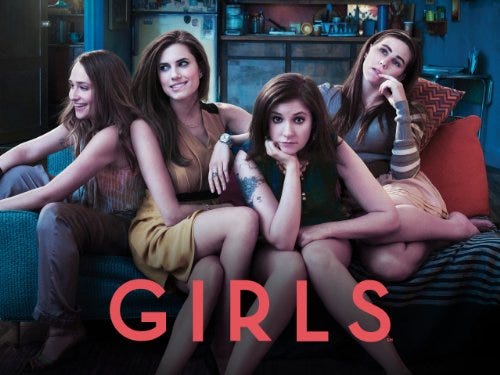A TV Show Character Doesn't Have To Be Your Best Friend
In defense of "unlikable" main characters
As some of you know, I published a novel a while ago and it did so badly that I actually stopped writing for a good five years. One of the biggest pieces of criticism I got about my book was that the characters weren’t likable and it ruined the book. I got a lot of comments about how people found the main character so annoying that they couldn’t even get through the book, even though it was their book club’s selection that month. I actually disagreed that my characters were too unlikable to enjoy—they were meant to be deeply flawed because I thought that would be more enjoyable. Some characters were actively antagonistic, but others were just insecure, awkward or a little annoying. Perhaps this comes from the fact that I was insecure, awkward and annoying at the time, but I didn’t find such attributes so heinous that a character would become unreadable.
In fact, my novel was inspired by the comedic style of shows like The Office, 30 Rock and Arrested Development. I don’t think it was derivative—I didn’t have a goofy love interest named Nim Kalpert. But one thing I liked about those shows was that they presented me with people who, on the surface, had no redeeming qualities, but who we eventually grew to love, or at least love watching. The Office made me look forward to seeing a middle-aged alcoholic, a pretentious neckbeard with Nazi ancestry, a narcissistic and ditzy drama queen, a priggish and homophobic church lady, and a former cult leader who sells drugs. Even the most unappealing characters were fun to watch. That’s not to say I wanted to work with them, or be friends with them. But I tuned in to watch them religiously, even when the show became objectively bad.
But something has happened with media literacy at some point in the past twenty years. We’ve reached an eerie point where anything depicted in media is seen as an endorsement of that thing. This means that any main character (nay—any “not explicitly the villain who is swiftly defeated” character) has to be someone you think is morally correct and aspirational. Thus, media is condemned when unsavory behaviors or attributes are shown without explicit condemnation (I have, unfortunately, seen people complaining about Lolita “endorsing” sexual predators.) When I was still editing my book, my agent’s 19-year-old intern criticized it for “endorsing a right-wing view” because one character (who was explicitly referred to as “an asshole”) said sexist things. There is an equally frustrating flip side of all this—where characters who were obviously supposed to be deeply flawed (if not evil) are seen as aspirational characters by people with weak moral centers and terribly media literacy. See: Patrick Bateman, Don Draper, Bojack Horseman, Rick of Rick and Morty.
But the best example of this phenomenon is Lena Dunham’s HBO series, Girls, which premiered in 2012. Perhaps it simply premiered at the wrong time, or perhaps it was doomed from the start due to its mix of comedy and drama, but it was criticized far beyond what was necessary, mostly because…gasp…people thought Hannah Horvath, the main character, was too unlikable, and projected that hatred onto Lena Dunham, the actress who played her (and the writer who created her.)




